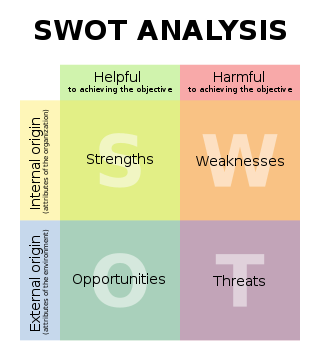|
It Might Be Time To Take
A SWOT At Your VO Biz
By Gregory Houser
Voice Actor
 No ... that's not a spelling error you just saw in the headline. No ... that's not a spelling error you just saw in the headline.If you think about it, there have been a LOT of recent articles about looking at your business, figuring out whether or not your VO business is an actual business or a hobby, whether or not your brand is dead, understanding the producer's puzzle, the top 10 mistakes that you can make, and even about concentrating on the business's share of wallet vs. share of market. All written by professional voice actors who are known in the business, who are very talented, and who are all absolutely correct. HOW TO APPLY ...
But are these articles actually dealing with any issues you face with your business? The short answer is yes, but the long answer is that you probably don't realize it. I'm here to help you with that.
How? Well, let's take a SWOT at your business.
Again ... that's not a misspelling. THE SWOT TOOL
A SWOT is a strategic planning analysis tool that is used on projects or business ventures (like yours). If you've never had to use one - let alone think of the phrase "strategic planning" - there's no need to worry, as this is pretty simple stuff. We just want to think about your:
Strengths,
Weaknesses,
Opportunities, and
Threats.
 I'd love to take credit for this little idea, I really would.
Albert Humphrey came up with the idea while teaching at Stanford University, yet the important thing isn't how SWOT came to be, but how we can use it in our business activities.
This requires us to be very honest with our analysis (or to bring in someone we trust if it's known that we'll have observational bias), to identify an objective for our business, and then to list out the following:
SO ... WHAT?
I'm sure you're thinking "This is great, but what can it actually do for me?"
Well that's also pretty simple if you think about it.
Once we've identified an objective for our business, then identified the specific quadrants of a SWOT analysis, we need to examine the following:
EVEN FOR COPY!
To use an example, Keith David is known to use the following method of SWOT analysis while auditioning a piece of copy (and I'll bet you that he didn't know there was a name to the technique either).
He'll look at the specs for the copy and cross off each descriptive word that he feels is part of his nature (identifying the Strengths).
He then looks at what remains and picks a few that he wants to concentrate on as his choice for his read (identifying and focusing on his Weaknesses in order to improve them).
This affords him the Opportunity to take the copy in a direction he may not be accustomed to, or at the least uses often.
By doing so, he's showing himself to be a more versatile actor and reducing the Threat of not booking the job.
MANY USES
Obviously this is a very simplistic example, but we can take the model and use it for more complex matters, such as running one's own voice-over business. The fact is that we use these strategies nearly every day, but most of us have never identified them or seen the relationship identified by a SWOT analysis. I hope you'll find a way to take the principle and successfully use it in your own ventures.
Gregory Houser is a Philadelphia-based voice talent whose voice-over credits range from technical, medical and corporate narrations to commercials, web audio, and charity institutions for clients such as Lockheed Martin, Pennsylvania State University, AstraZeneca, and others. He holds advanced degrees in Trusted Computing and Information Science, in addition to being ISC2- and GIAC-certified, skills which he brings to his blog: A man, a martini, and a lot of microphones.
E-mail: greg@gregoryhouser.com
|
|
|
Tell Us What YOU Think!
Please Note: Since we check for spam, there will be a slight delay in the actual posting of your comment.
Comments
No comments have been posted yet. Hurry, and you could be the first!

.png)







click for new article alerts